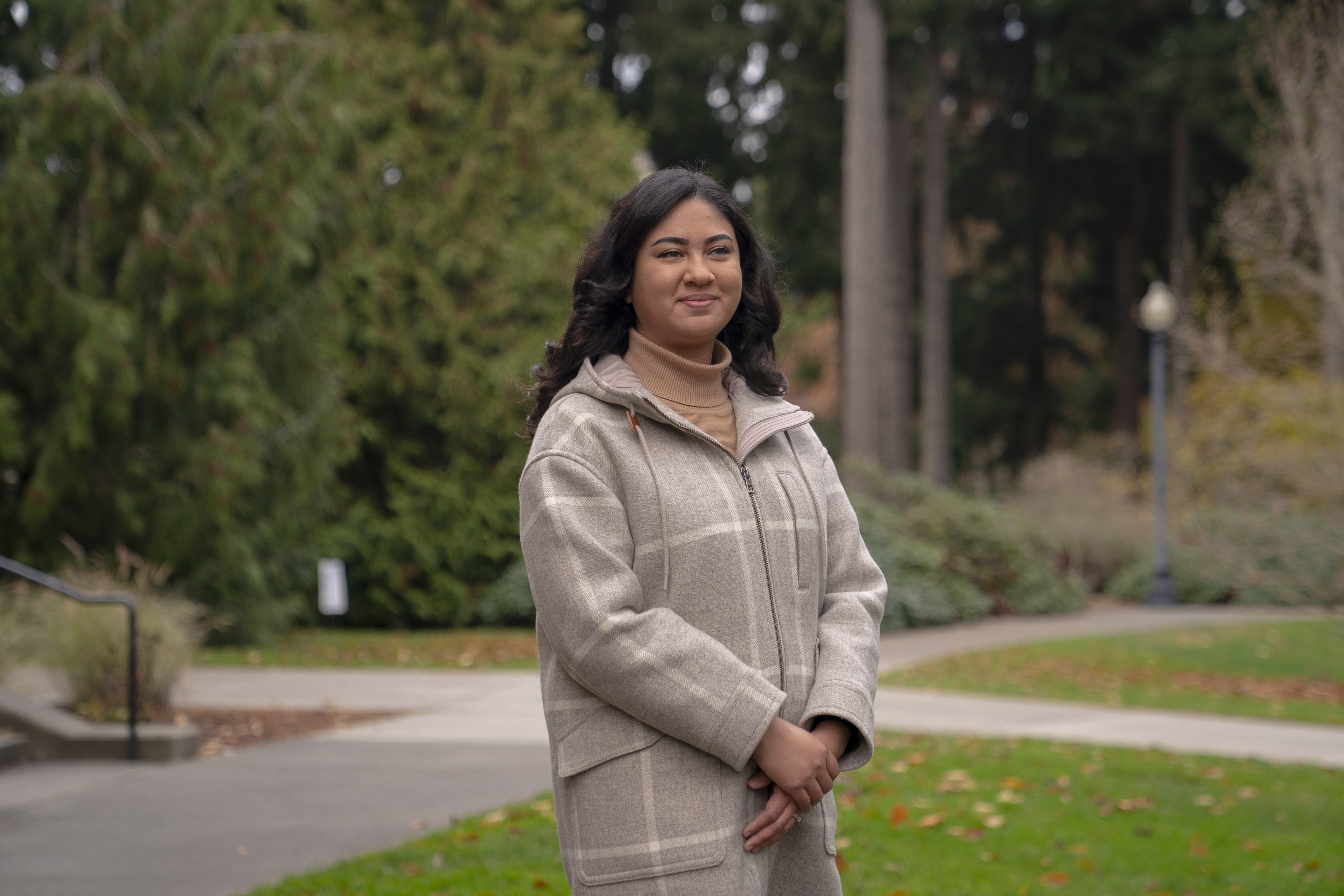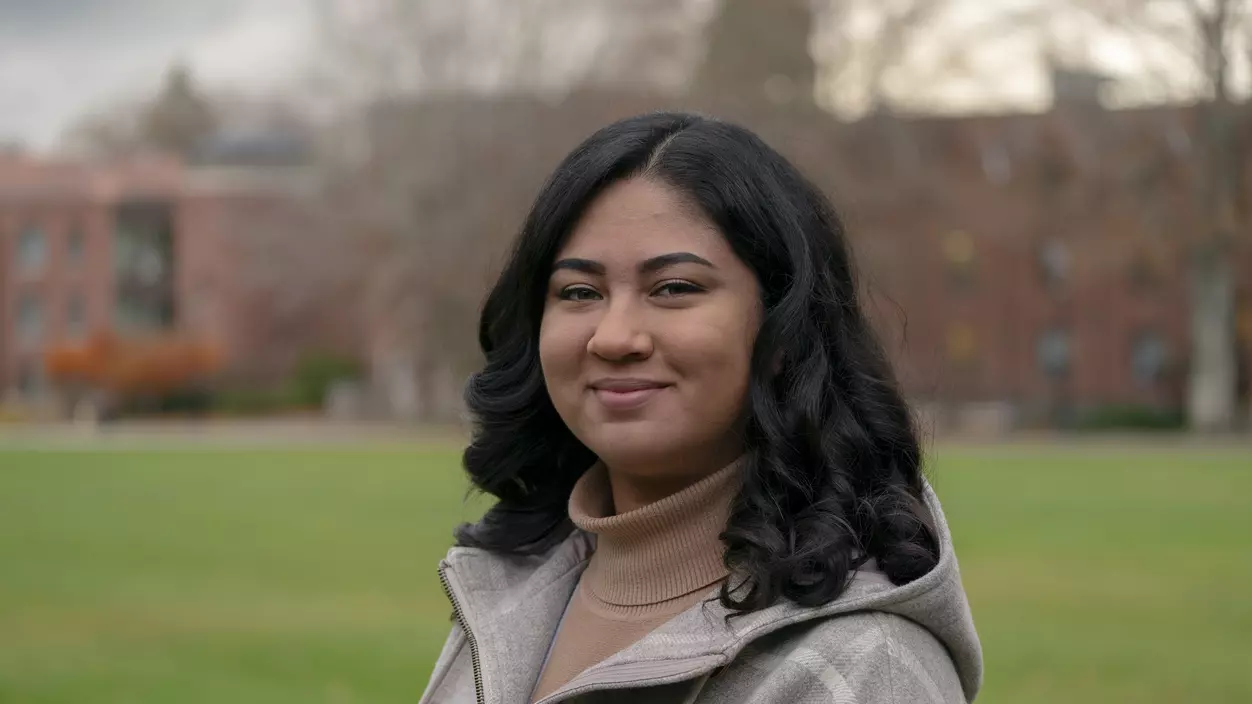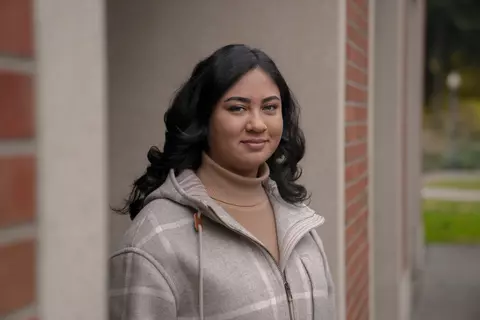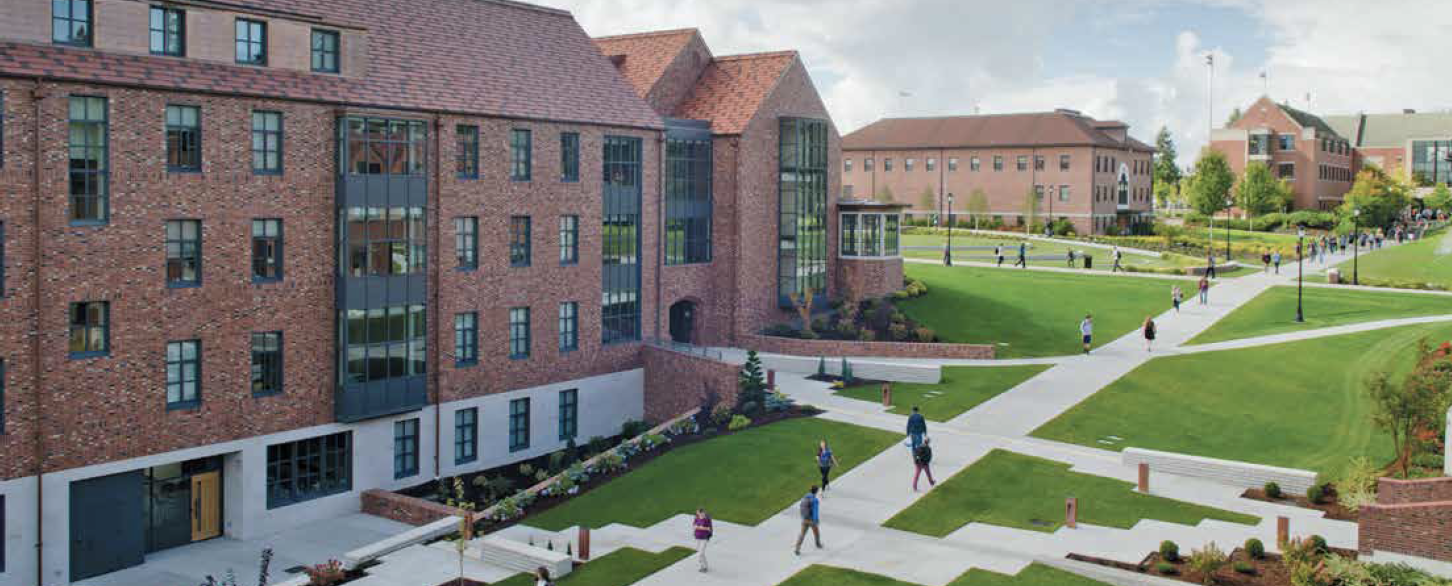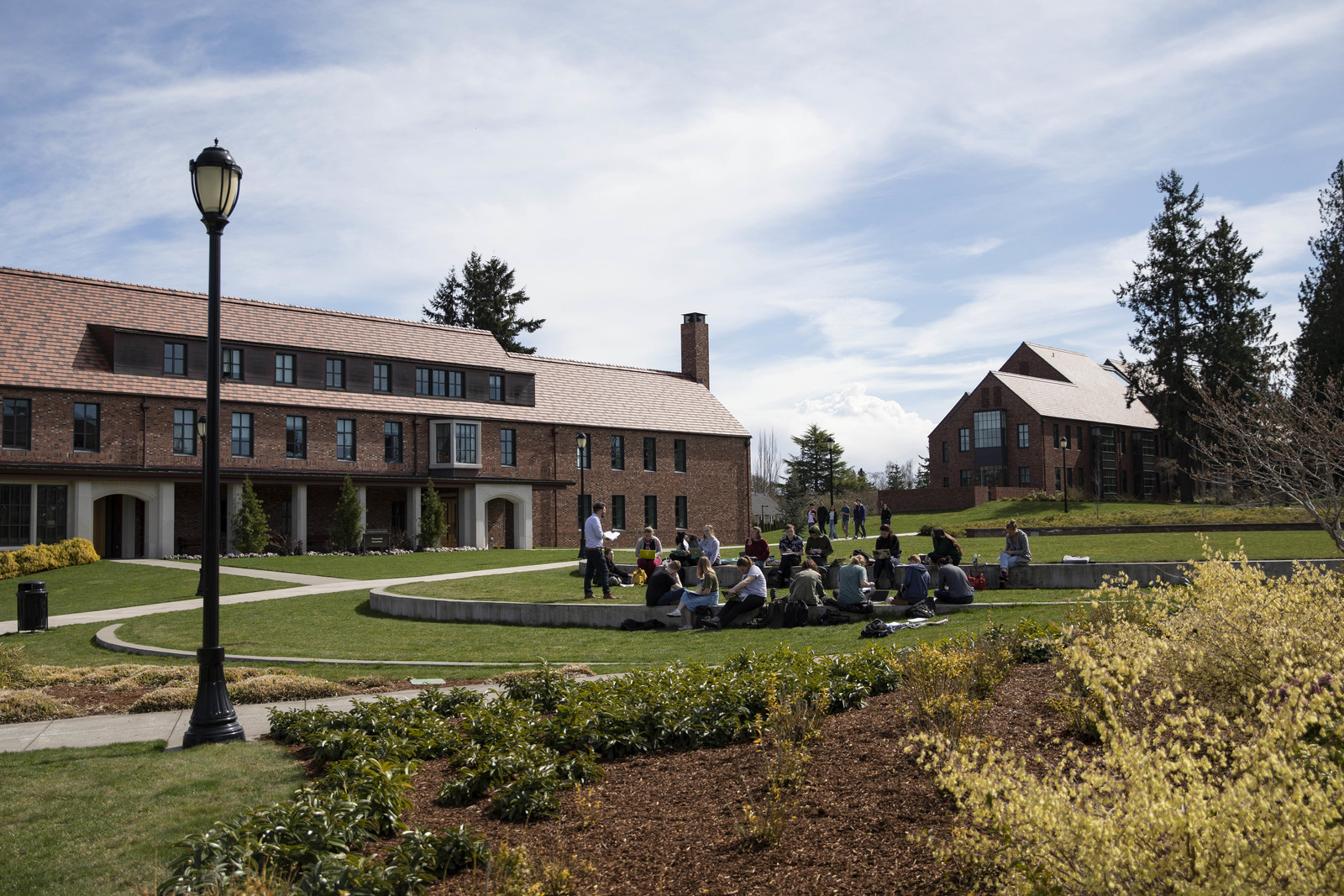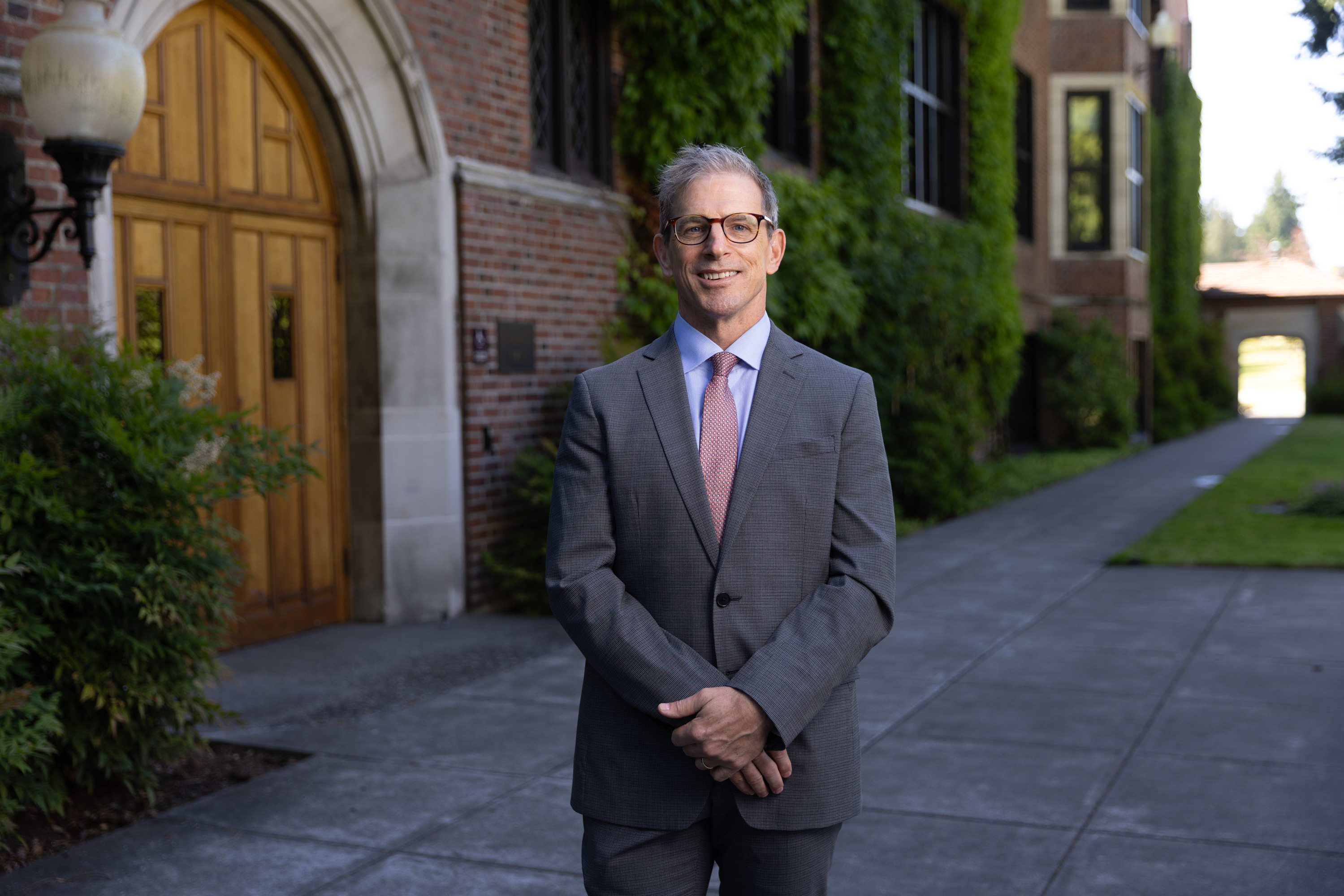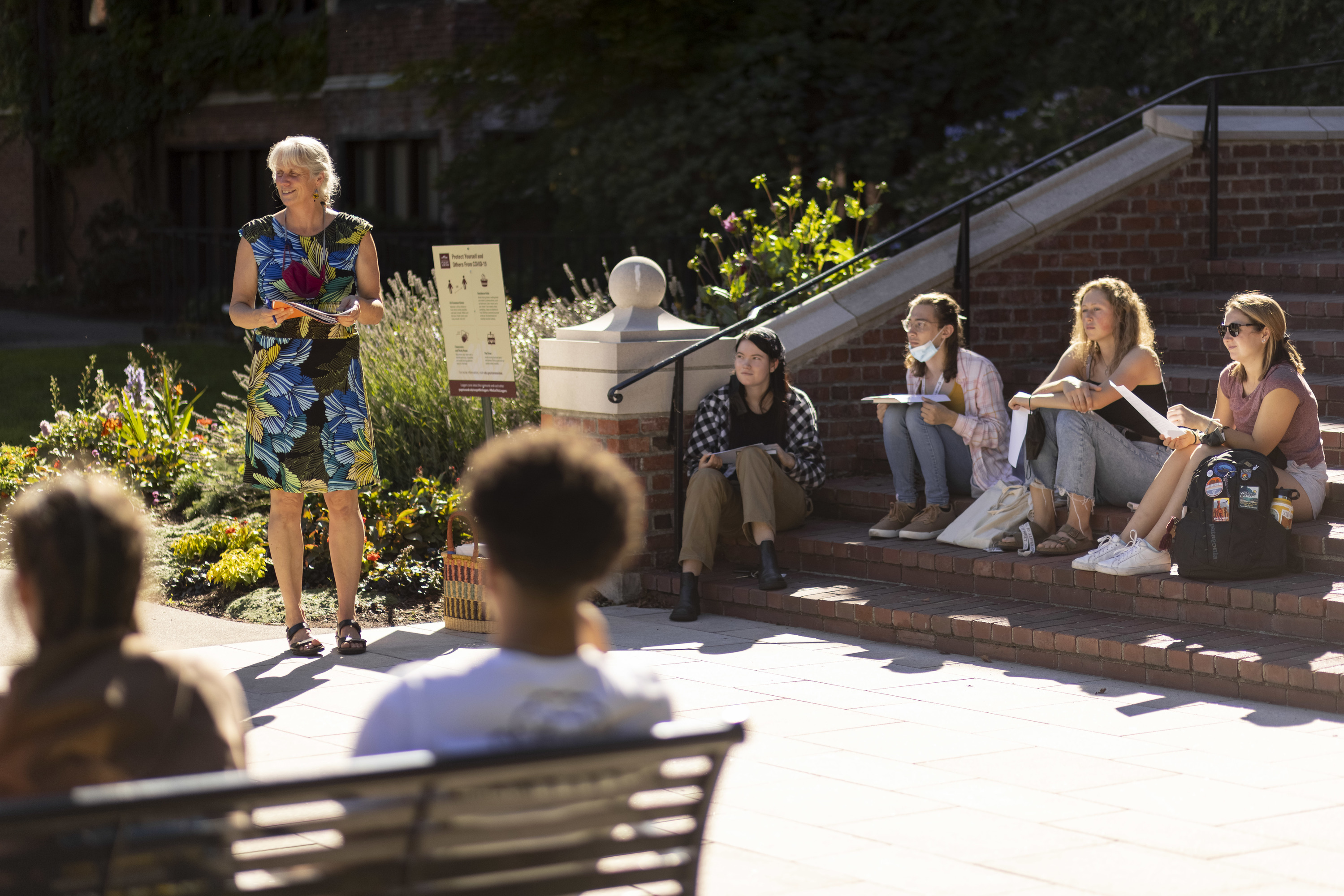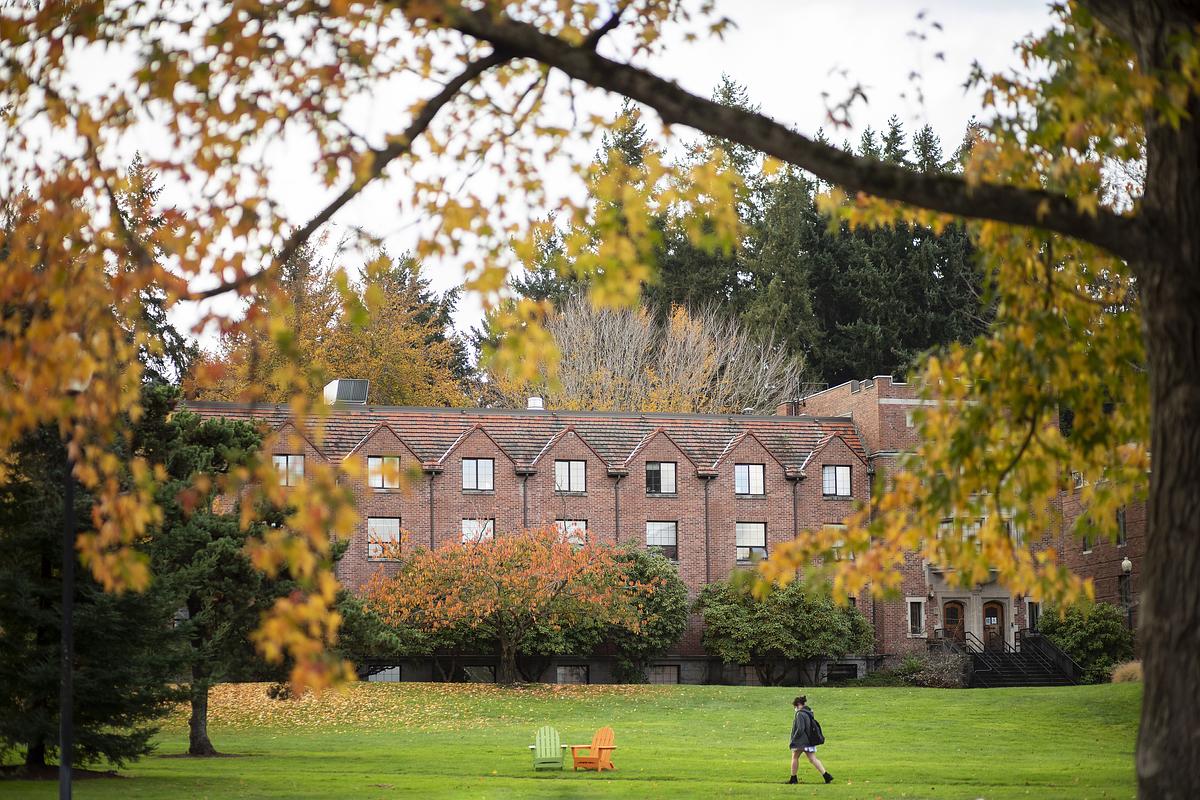Q: You recently completed your PhD at Arizona State University. What led you to pursue an academic career in linguistics?
A: I’m originally from Tahoe, Calif., but I grew up in Las Vegas, Nev., and went to UNLV for my undergrad. I’ve always been interested in language, so I started taking French classes. Eventually, I decided that I should try to take some Spanish classes, too, because I grew up speaking it. I think, like many young bilinguals, I thought I could take a few classes and become an interpreter, because I had grown up interpreting and translating between English and Spanish. I did a short internship as a medical interpreter and quickly realized it wasn’t for me. So, instead, I took a linguistics class and I loved it. I had mentors along the way who helped me figure out how to pursue my interest, which led me to do my master’s at the University of Oregon, and then my doctorate at Arizona State.
Q: Why did you choose Puget Sound?
A: I love pedagogy, so when I was finishing my doctorate and started my job search, it was important for me to find a school that aligned with what I wanted to do. A lot of the other schools I looked into were more focused on research, but Puget Sound stood out for its commitment to teaching. I also knew I wanted to be in the Northwest, because the Spanish-speaking communities here are growing so quickly, and there is a lot of opportunity to conduct sociolinguistic research. It’s an exciting time to be a linguist in Washington.
Q: Why is the study of Spanish linguistics important now?
A: Spanish linguistics, especially Spanish as a heritage language, is often seen as a niche discipline, but it’s becoming more relevant all the time. After English, Spanish is the most spoken language in the United States. We have more Spanish speakers here than in most other Spanish-speaking countries, and Spanish has been present in the Americas for a lot longer than English, so to study the language, how we use it, and how it’s changing is a way to more fully understand our multilingual society. Linguistics also helps us make sense of how people are treated because of the language they speak. I think about the discrimination people sometimes face when they speak Spanish in public. It’s a dimension of diversity, just like race, class, or gender. How you speak impacts your ability to get housing, education, and job opportunities. Linguistics can show us what’s at the root of these social and political issues.
